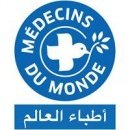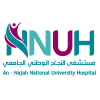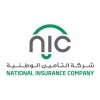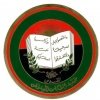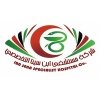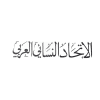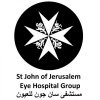Consultancy services: Final Evaluation
INVITATION FOR CONSULTANCY SERVICE
(INDIVIDUAL/ Firm CONSULTANT REQUIRED)
evaluation Terms of reference
PROJECT TITLE: Reinforce the access to quality medical, mental and psychosocial emergency response in the Occupied Palestinian Territory
COUNTRY: Palestine
DATE OF DOCUMENT: November 2019
context
Origins OF REQUEST
Brief introduction to the project
Médecins du Monde France (MdM-F) has been working in the oPt since 1996 and today MdM is present in the oPt through its three offices located in East Jerusalem, Nablus and Gaza.
In Gaza: Since 2007, MdM worked in upgrading of 25 PHC clinics from level 2 and 3 by reinforcing the staff's capacity, rehabilitating and equipping structures, and providing needed drugs and disposables. Following the attacks on Gaza in 2009, 2012 and 2014 MdM-FR focused its intervention on strengthening the emergency preparedness and response capacities and the management of emergency cases at PHC and community levels including Mental health. Thus, 11 Emergency Rooms (ER) were established, rehabilitated and equipped. Staff were capacitated. At community level, volunteers of community-based organizations (CBO) all along the Strip were trained in Basic Life Support (BLS). Following a deep assessment implemented at the end of 2017 in the emergency departments of 6 hospitals, MdM is working on increasing the capacities of 2 emergency departments in triage of cases/patient flow, data collection and registration, technical knowledge and skills, availability of drugs, disposables and medical equipment. At the same time, a theoretical training is conducted for the 6-hospitals’ emergency departments medical and managerial staff across the Gaza Strip on medical emergencies. In 2018 and following the Great March of Return, MdM has been present in Al Aqsa Hospital providing the support to the Emergency department through direct deployment of MdM national mobile teams to reinforce the triage system and decrease the load on the ED by expanding bed capacities inside triage tents. In addition, MdM has been working on enhancing the trauma pathway from the point of injury to post-operative care and rehabilitation in Deir el Balah Governorate and Kahn Younis Governorate
In North West Bank: Between 2008 and 2011, facing a general gap in the provision of mental health issues, MdM partnered with the MoH to establish Community Mental Health Centres (CMHC) in Nablus and Jenin and to build the mental health referral system. As a complementary intervention, MdM set up a pilot program to integrate mental health services in Primary Health Care Centres “PHCCs) in Nablus Governorate. The success of this pilot program led MdM and the MoH to extend this mental health integration approach until 2016 to all Nablus Governorate, in partnership with a local partner specialized in mental health (the Arab Centre for Counselling and Education – ACCE known as the Palestinian Counselling Centre (PCC)). Since 2012, MdM started, in coordination with the Protection Cluster, to provide a Psychosocial Emergency Response in NWB after potentially traumatic events. This intervention also involves a protection component through the protection referrals and case management, in addition to advocacy. In complement to this immediate psychological response, MdM promotes the resilience of the vulnerable communities through Psychoeducation. Since 2017, MdM is covering 4 governorates of the NWB (Nablus, Salfit, Qalqilya and the Northern Jordan valley located in Tubas governorate) with MHPSS emergency response following demolitions, settlers’ related violence and Israeli Security Forces excessive use of force incidents.
The Operational Purpose of the project is to reinforce the access to quality medical, mental and psychosocial emergency response in the occupied Palestinian territories. The project is implemented in Gaza and West Bank, which as previously described have different characteristics, therefore different kind of interventions are designed for both areas towards the operational purpose. The project is structured in 4 different results, 3 of them covering the Gaza Strip and the fourth one the North West Bank. In Gaza, the intervention is a continuation of previous projects on Emergency Peparedness and Response (EPREP). This intervention puts its focus in the secondary level of services, by working in the Emergency Departments of 6 hospitals, completing the emergency response already worked at community and PHCC centers during the previous projects. In West Bank, the project covers villages and Bedouin communities of the North West Bank Governorates of Nablus (60 villages), Qalqilya (33 villages) , Salfit (19 villages) and Northern Jordan Valley located in Tubas Governorate (14 communities).
Result 4 Mitigate the psychological and psychosocial impacts on the Palestinian individuals and communities affected by potentially traumatic Occupation related events in the North West Bank
evaluation objectives and target readership
evaluation objectives
To evaluate the impact of the intervention and approach in terms of activities and to gather achievements and lessons learnt.
To use the finding to strategically develop MdM’s future project implementation in terms of activities and financing.
evaluation scope
The evluation will incldue all fields of intervention in all covered geographical areas in both in Gaza and WB from 1st of April 2017 till 31st of Decemebr 2019.
In Gaza :
- 6 Hospitals with focus on Al Aqsa and EGH
- 11 Primary health care clinics with Emergency rooms
- 25 CBOS
- Union Agricultural Work Committees (UAWC )
- Cultural and Free Thought Association (CFTA )
- Al ATTA Organization
- MDM Gaza Base
In WB :
- 126 communities in the NWB governorates as following : Nablus (60 villages), Qalqilya (33 villages) , Salfit (19 villages) and Northern Jordan Valley located in Tubas Governorate (14 communities).
- Ministry of Education and Higher Education Psychosocial support teams : 5 locations
- MDM WB base
The evaluation must cover all below aspects
Overall objective (Oberziel):
Mitigate the impact of emergencies on the health and psychosocial wellbeing of the Palestinian population in the Occupied Palestinian Territories (OPT).
Skills required to lead the evaluation process
The evaluator requires the following skills:
- Very good experience in evaluation of emergency/humanitarian and transitional projects
- Professional experience with international NGOs, with focus on medical programmes
- Strong analytical skills and self-sufficient way of working
- Professional experience in primary health care, mental health, EPREP an asset
- Experience in Palestine/the Middle East an asset
- Fluency in English
- Fluency in Arabic an asset.
Application Pack
Consultants interested to apply should provide a full application pack of 10 to 15 pages maximum, comprising the following elements :
Technical proposal including:
- Understanding of the Terms of Reference
- Technical approach developed and detailed methodology
- Composition of the team, division of responsibilities between its members, CVs submitted and availability of members
- Provisional timetable for the evaluation and an estimate of costs per person per day
- References from two similar previous assignments
- A sworn statement as to the absence of any conflict of interest
Financial proposal including:
- Total budget including all tax and incorporating a budget break-down (fees, living expenses, travel, interpreter, etc.).
Submission:
In a sealed envelope and specifically headed PALESTINE/G-W FINAL EVALUATION/19: to the following address
OR
Final date for submission of applications: 27.11.19, 9 am local time, Jerusalem




